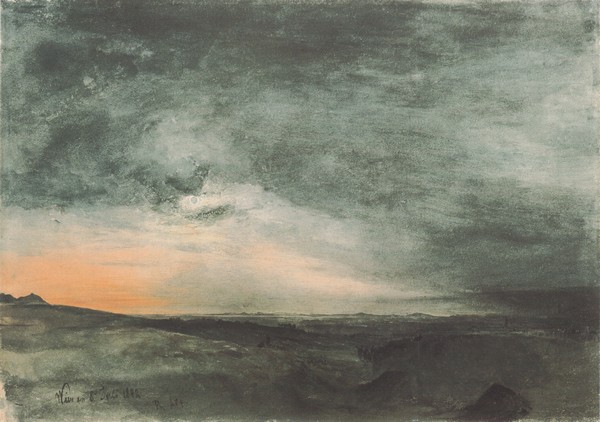
Korngold has often been programmed for song recitals this season, at least much more than usual, and I'm happy with that. But I didn't realize the reason until recently: Erich Wolfgang Korngold was born in 1897 (and died in 1957), so this year marks 125 years of his birth (and 65 of his death). Don't you think we could listen to one more of his song this week on the pretext of ephemerides?
When I first spoke with you about him, I made a brief review of his facet as a composer for cinema, which he developed in parallel with that of a serious composer. It all started in 1934 when Max Reinhardt (one of the first artists who had to leave Germany to save his life) persuaded him to go to Hollywood after much insistence; he was about to direct his first film there, A Midsummer Night's Dream, and needed someone who knew well the music by Mendelssohn and was able to select some excerpts and to compose the transitions between them. Korngold enjoyed that work, involved in the film shooting, and everyone was delighted with the result. The producer offered him an extremely generous contract, with the best economic and working conditions, to keep him in Hollywood.
But the Korngolds missed Vienna, and the composer had to premiere his opera Die Kathrin, so in May 1935 they went back to Europe. Telegrams continued to arrive there with tempting offers from America, and a few months later, in August, the family packed again. This time for health reasons; the doctor considered that the dry, warm winter of California would benefit the youngest son, Georg, who was recovering from a pulmonary disease. In spring, they returned to Vienna, and a few months later they travelled to Hollywood… And so, they spent a few years, dividing their lives between their home and that strange place that was a world by itself. While in Vienna, Korngold struggled to premiere Die Kathrin; the production was suffering numerous setbacks, also related with Korngold being a Jew. While in Hollywood, Korngold used to work intensely at the studios and spend his leisure time with the German colony that gathered there fleeing Nazism (without the talent of these directors and composers, Hollywood would not have been the same).
However, Korngold lacked a sense of danger, being an Austrian and not a German. When the family left for New York in January 1938, Ernst, the eldest son, stayed with his maternal grandmother because of the school. However, on March 12th, the Anschluss arrived, and the efficient, unappealable mechanism of Nazism began to run also in Austria. Ernst and Julius, Korngold's father, were very close to being trapped there. The composer managed to get them and his wife's family out of the country, and helped as many people as he could, until the American authorities told him to stop asking for safe conducts. His home in Vienna was occupied by the Nazis, and his publisher was able to save in extremis most of his scores from the fire, including the yet unpublished Die Kathrin. The opera was finally premiered in Stockholm in October 1938 directed by Fritz Busch, who also had fled Germany, in this case because of his open opposition to Nazism.
Exile had a huge impact in Korngold. During the war years, he practically gave up composing serious music, and his health deteriorated. In 1947, it was planned that he would finally return to Vienna after almost ten years in America; but he suffered a heart attack, and it was not until May 1949 that the family was able to board the ship that would take them home. It was an unfortunate encounter. Vienna was destroyed; their home was no exception, and they could only make one floor habitable. Their house at the Alps hosted refugees, and they sold it to the city council for a symbolic price. It was even worse, they didn't find their acquaintances, either they had been exiled or they had been killed.
Musically, things weren't much better. Some of his works were performed there, but went unnoticed. Finally, Die Kathrin was premiered in Vienna in October 1950. It appears that part of the audience liked it very much, while another found it too light, with an argument that was not appropriate for the circumstances; the reviews weren't good, and it was performed only eight times. Viennese had loved Erich W. Korngold's music fifteen years before, and now they found it unfashionable. Aware that it was no longer their home, the Korngolds left Vienna in 1951 to never come back.
In 1953 Korngold wrote his last song, Sonett für Wien. The poem, which described a Vienna that no longer existed, was an unpublished sonnet by Hans Kaltnecker, a poet who had died in 1919 at his twenty-four. Korngold had set into music three of his poems in 1924, and Der Wunder der Heliane (premiered in 1927) was based on his work Die Heilige. As for the song's music, the composer recovered a theme he had composed for the film Escape me never, his last cinema music; the film, starring Errol Flynn, Ida Lupino and Eleanor Parker, didn't go down in history, but the music is really worthwhile; the character Flynn plays is a composer, and writes works such as this scene, in which we hear the melody of Sonett für Wien.
We're listening to this melancholic song, even sadder when we know the background, performed by Konrad Jarnot and Reinild Mees. Just one more thing, to conclude: when Korngold died in Los Angeles on 29 November 1957, a black flag flew half-mast at the Vienna Opera (reopened two years earlier) in his honour.
Du Stadt, du Psalm, aus Gottes Mund erklungen
und Stein geworden, Marmor, Park und Garten,
Gedicht und Lied der liebsten Engelzungen,
die lange deiner gold’nen Kirchen harrten,
drin alle Heil’gen, wunderlich bezwungen
von ihrer hohen Form, zu Glanz erstarrten!
Stadt der Fontänen, altem Stein entsprungen,
barocker Bauten, gnädiger Standarten,
die über hohen Prozessionen schweben!
Du Stadt, darin der Klang vergang’ner Zeiten
noch klingt, darin das alte Gold noch leuchtet,
darin die dunkeln, frommen Bilder leben
und Gottes Auge aus den grünen Weiten der Berge
strahlt, von Wehmut sanft befeuchtet.
You city, you psalm, resounding from the mouth of God
and having become stone, marble, parks and gardens,
poem and song of the loveliest of angel tongues,
which long awaited your golden churches,
within which all Saints, wondrously subjugated
out of their exalted forms, frozen [in stone] to shining glory!
City of fountains, emanating from ancient stones,
[city of] baroque buildings, [of] gracious guidons
that wave above the lofty processions!
You city in which the resonance of past times
may still be heard, in which the ancient gold yet gleams,
wherein the dark, pious paintings live
and the eye of God, softly bedewed with melancholy,
shines radiantly from the green expanses of the hills.
(translation by Sharon Krebs)


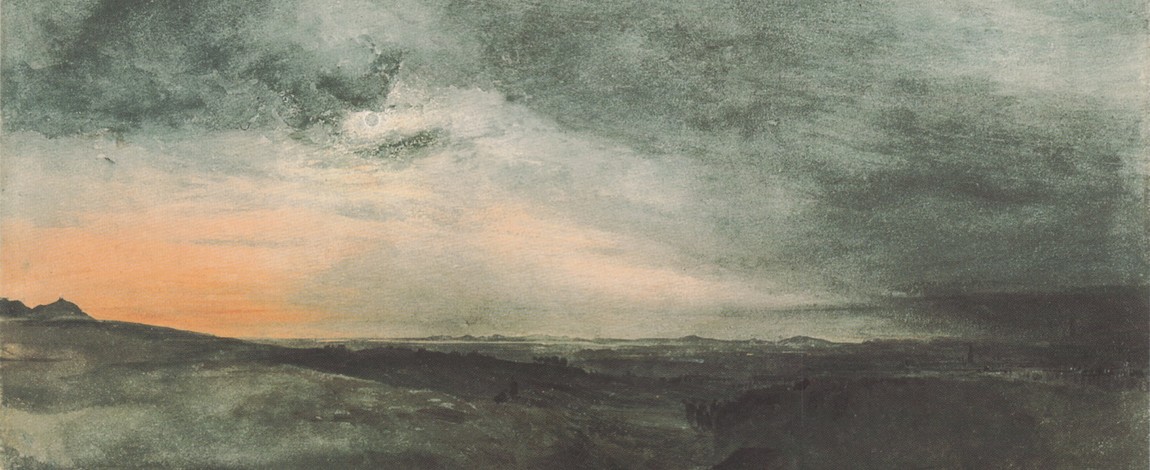
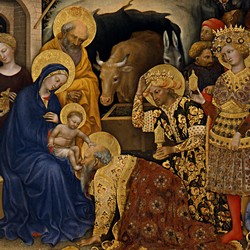
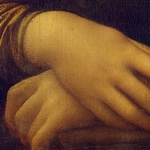
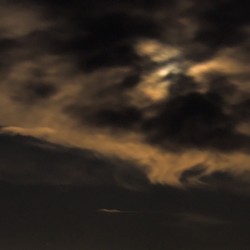












Comments powered by CComment